Contents
- 1 How It Began?
- 2 Why You Should Bargain?
- 3 So Then, How Can I Bargain Effectively in Vietnam?
- 3.0.1 1) Learn How to Say Numbers in Vietnamese
- 3.0.2 2) A Price Tag Mostly Means The Price Cannot Be Negotiated
- 3.0.3 3) Offer The Merchants 1/2 of The Initial Price
- 3.0.4 4) Know The Market Price
- 3.0.5 5) Try to Observe The Local Buyers
- 3.0.6 6) Only Take Out Your Wallet Once You Bargain Successfully with The Merchants
- 3.0.7 7) Talk to The Youngsters In Case You Need Any Help
- 3.0.8 8) Choose Well-known Taxi Brands for Long Rides
- 3.0.9 9) Don’t Be Afraid to Act Like You’ve Run Out of Money
- 3.0.10 10) Be Careful with Your Attitude
- 4 So…
How It Began?
It is no surprise that in most South East Asian countries, especially developing nations like Vietnam, most people usually show an unfair treatment towards foreigners. The discriminatory attitude partly stems from foreigners being seen as richer because of their spending habits, attitudes, perhaps even the way they dress. All travelers, regardless of where they are from, a developed or a third-world country, will be harassed or overcharged at some points. There is no need to worry about it (cause we’re going to offer you some tips anyway!). Relax and enjoy your trip to Vietnam and keep in mind that bad people are everywhere and this behavior is unacceptable but understood given the economic climate.
Why You Should Bargain?
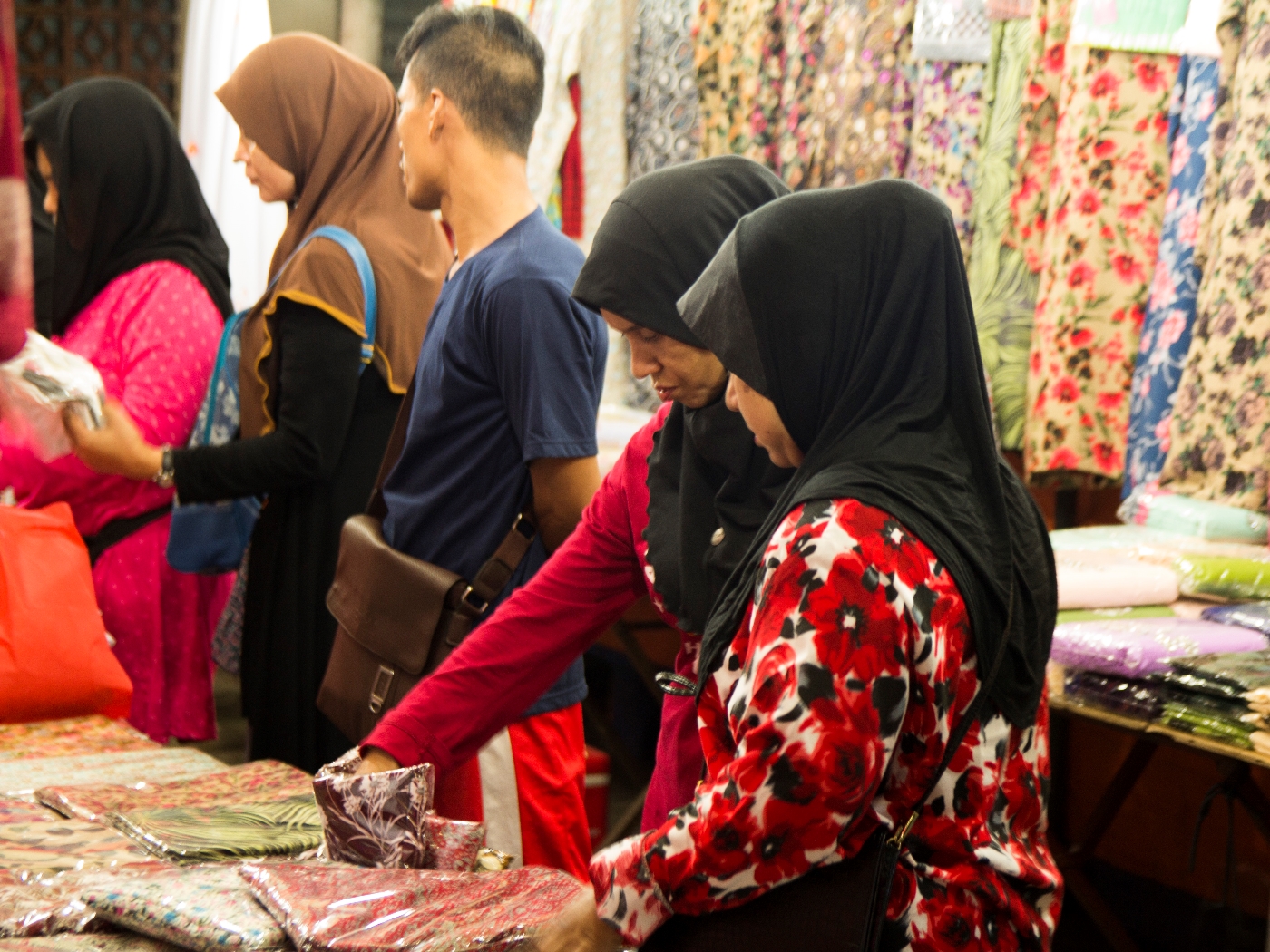
First and foremost, it never hurts to bargain and you may even have a chance to buy everything at a lower price than usual. There are tons of benefits from a successful bargain and at the same time, you can practice your communication and persuasion skills. Some thoughts that may discourage someone from bargaining include:
“Hold on! I’m rich, I can afford everything with my money.”
“I like helping out the financially needy.”
“Bargaining might ruin my reputation”.
Guess what? If you don’t bargain, you will always pay much more than you technically should and eventually, this complacency creates a culture of overcharging! (Greedier people create inflation, destroying the market and the livelihood of good/honest sellers). Most Vietnamese people will try to rip you off no matter where you come from and this discrimination is even forced upon locals traveling to different regions.
Greedier people create inflation, destroying the market and the livelihood of good/honest sellers.
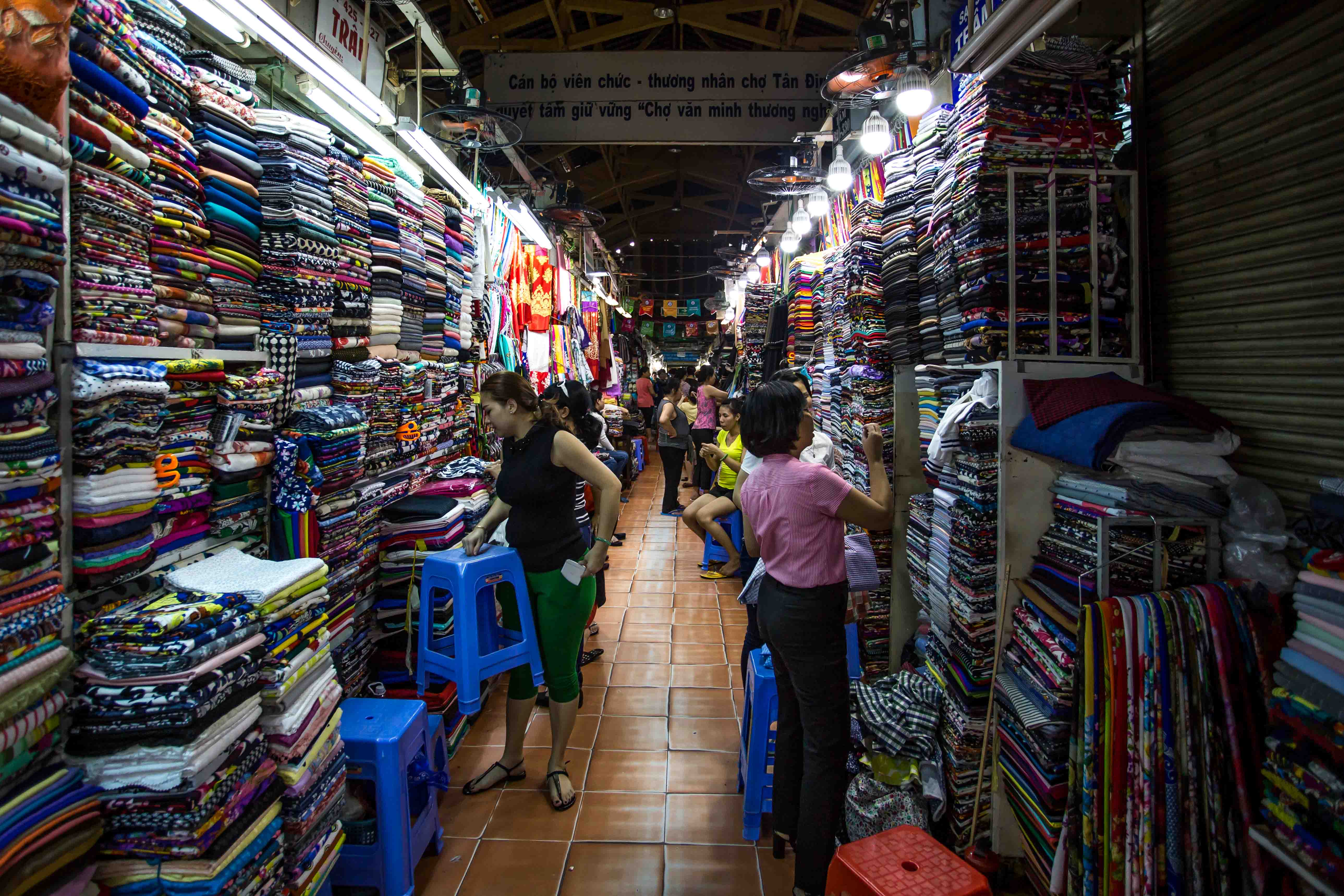
Accepting to buy things at a higher price doesn’t mean you are a generous individual; it’s just a chance for greedy people to take advantage of you. They view you as an innocent fish wandering in the ocean, and the moment you show curiosity and excitement about experiencing a new culture, bam! You get hooked. Once you agree to buy things at the initial asking price, the moment after you turn your back, those people are going to whisper to each other and laugh at how innocent and easy it was to cheat you. Talk about malicious. So, my question for you is do you still want to accept whatever price the sellers first set? And why should you respect someone who doesn’t respect you at? Actually, it’s not that I’m pessimistic and exaggerating the attitude of most vendors. It just really is the status quo between Vietnamese street vendors and foreigners.
So Then, How Can I Bargain Effectively in Vietnam?
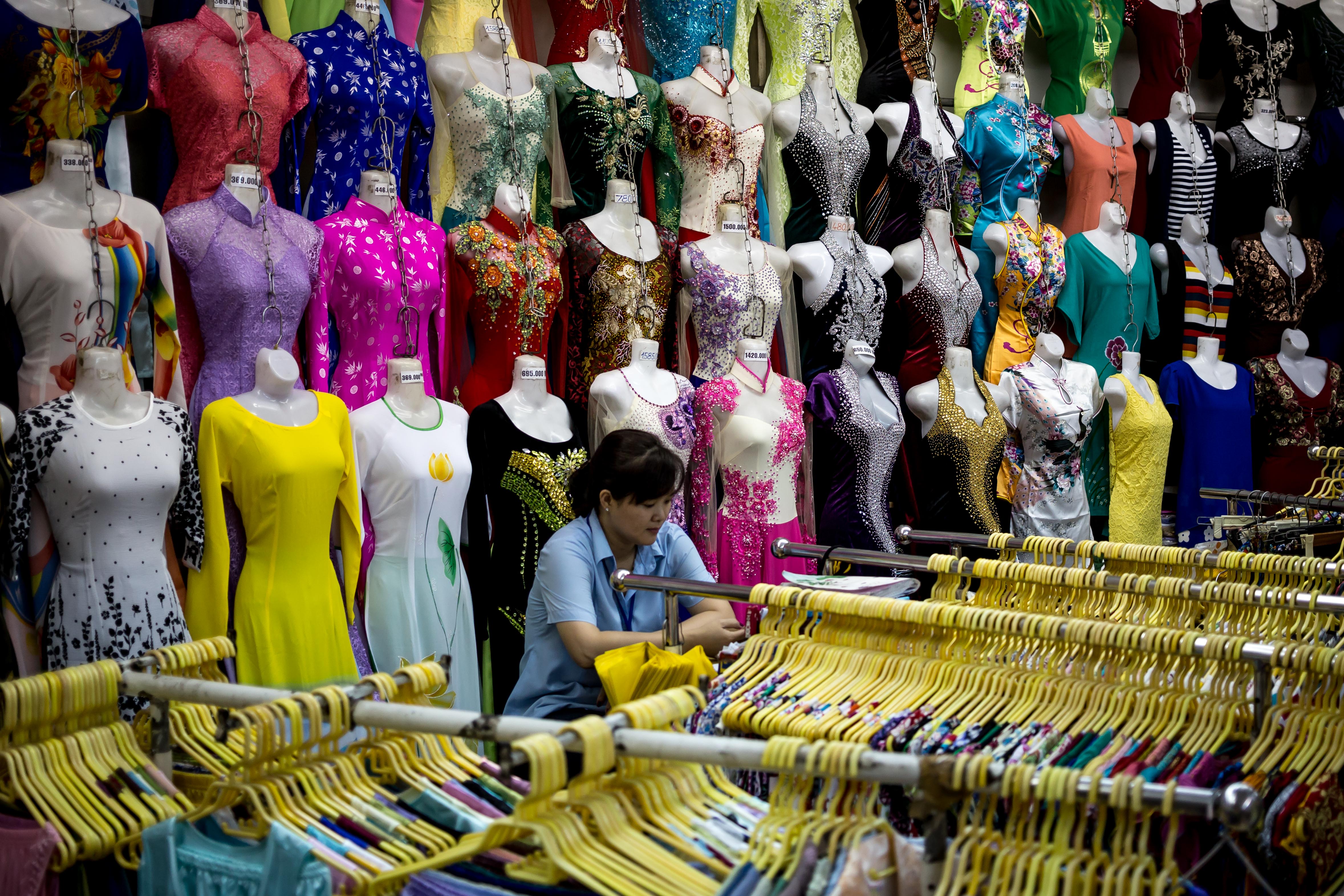
Good question! By bargaining, you are unintentionally involved in a situation that you have no choice but to persuade people why they have to agree with you. You need to observe people’s facial expressions, their body language and gestures each time they set a selling price, and how they react after hearing your propose new price. Now, this is extremely interesting and useful since it allows you to become better at reading people. Let’s be more detailed by doing some following techniques:
1) Learn How to Say Numbers in Vietnamese
One of the most essential things is to know the local language! Learn how to say numbers in Vietnamese. Vendors will be surprised and delighted when hearing a foreigner trying to bargain in Vietnamese. Just apply some simple phrases such as “Bao nhieu?” (How much?), “Dat qua!” (It’s too expensive!), “Ben kia ban re hon!” (The previous shopkeeper sells cheaper than you!).
Read more: Essential Vietnamese Words and Phrases for Travelers in Vietnam
2) A Price Tag Mostly Means The Price Cannot Be Negotiated
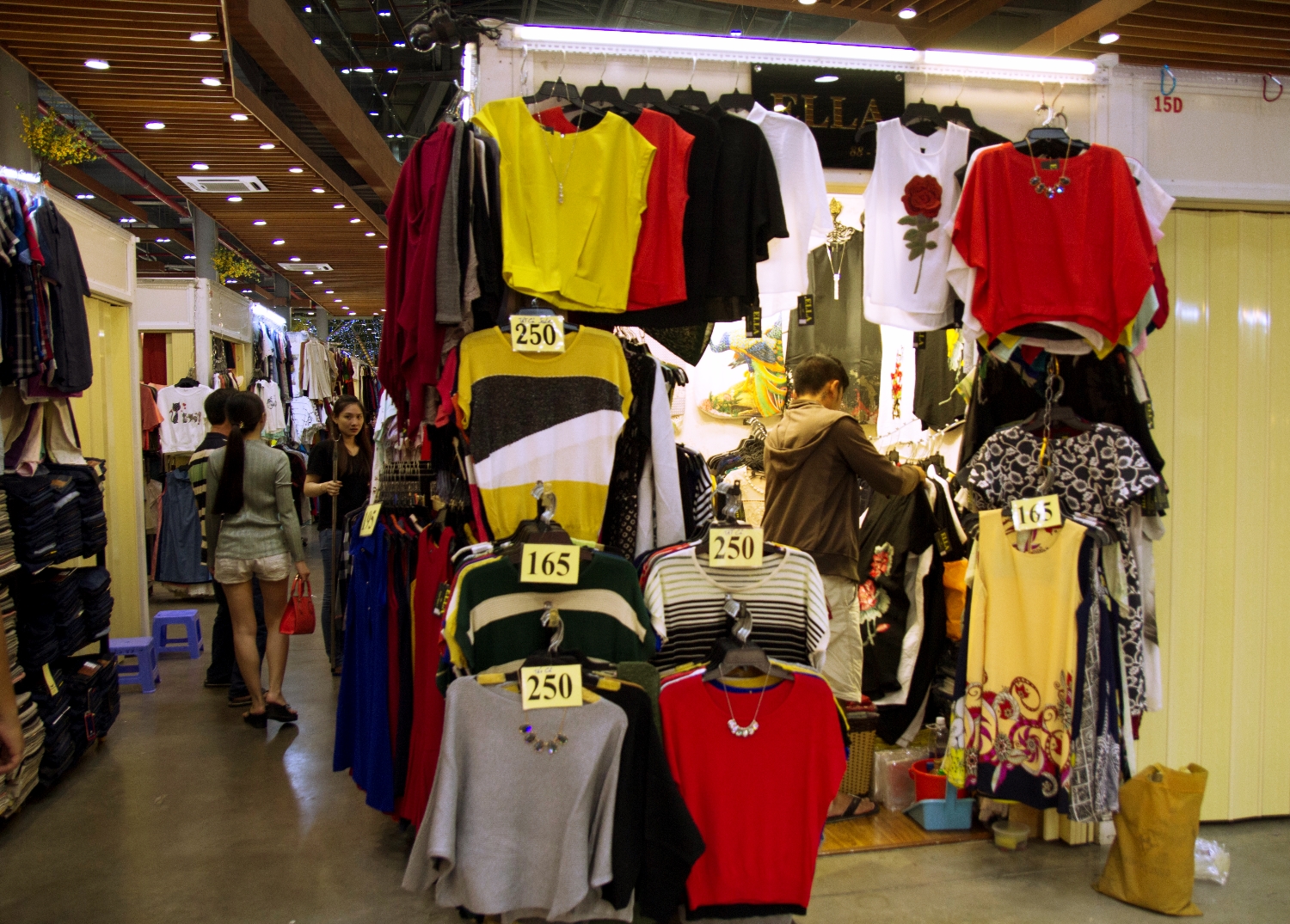
If something has a price tag on it, this would mean you will most probably not be able to negotiate the price down further. The same situation applies for fixed prices listed on menus or signs at restaurants, coffee shops, and bars.
3) Offer The Merchants 1/2 of The Initial Price
At some markets for foreigners, offer the merchants 1/2 of the initial price (1/3 at Ben Thanh market). If they don’t agree, gradually start to raise the price up until your resistance point. And if they still don’t agree, pretend to walk away. Before that, do not express any kind of interest in the stuff you want to buy!
4) Know The Market Price
Before you decide to buy something, go for a round to see whether its price is different among similar shops. This way, you can compare the selling price of each store and select the most suitable one.
Read more: The Ultimate Guide to Saigon’s Many Markets
5) Try to Observe The Local Buyers
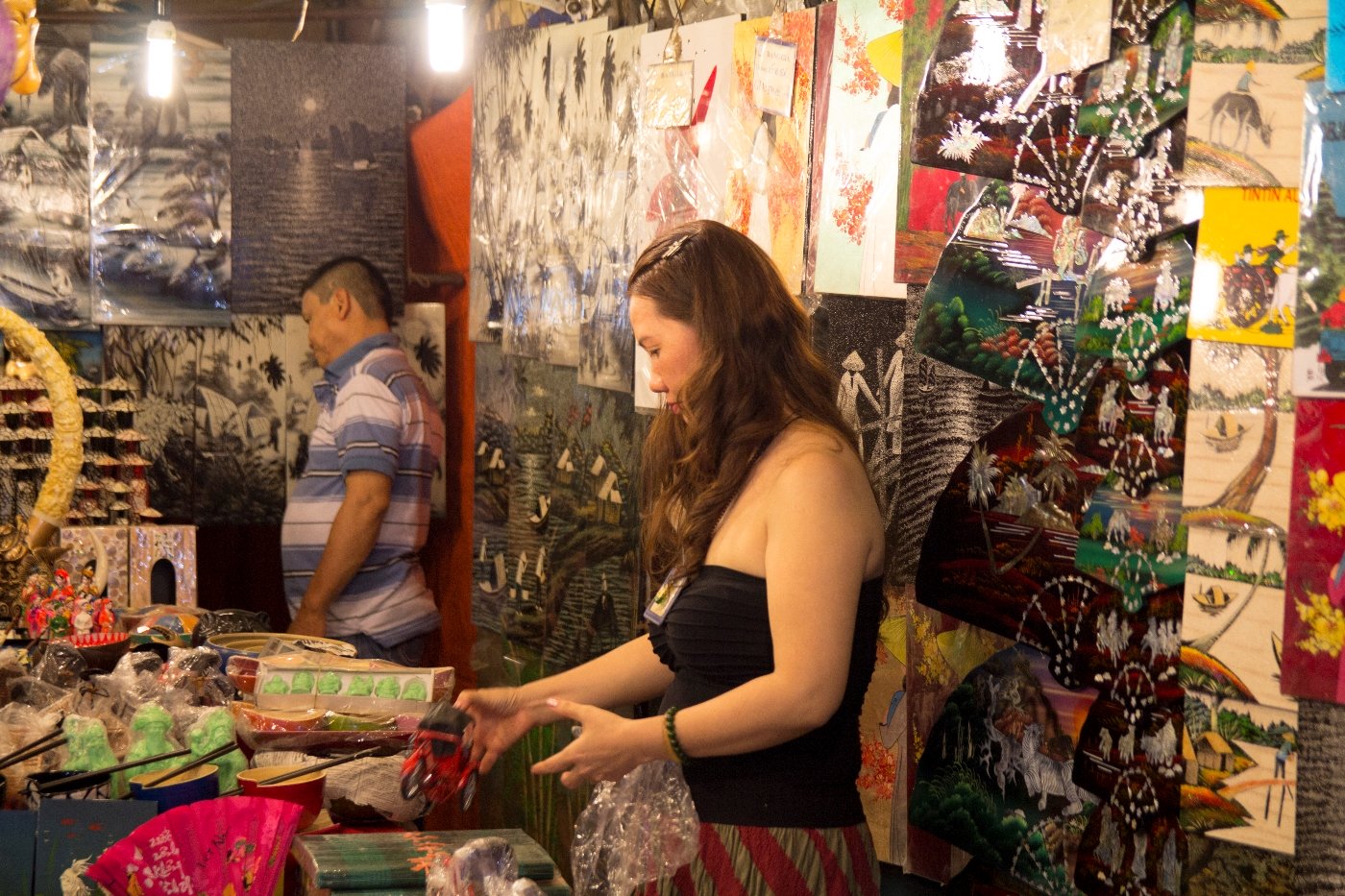
Try to observe the local buyers: How much they pay and how they bargain with the sellers. If a big gap exists between the selling price to foreigners and locals, do not be afraid to point it out. Sellers may realize how unfair this is and agree to sell at the lower price.
6) Only Take Out Your Wallet Once You Bargain Successfully with The Merchants
The price may increase if merchants see you pull out a lot of money. So remember, only take out your wallet once you bargain successfully with the merchants in case they want to raise the price. Do not hesitate to walk away (they will call you back, not to worry!).
7) Talk to The Youngsters In Case You Need Any Help
Young people are usually more open-minded than their elders and can speak some basic English.
8) Choose Well-known Taxi Brands for Long Rides
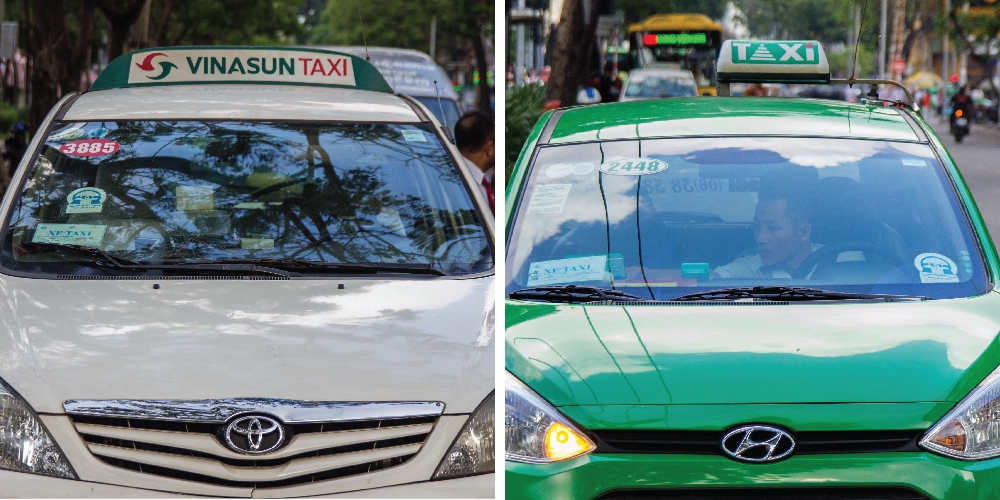
Whenever you want to take a long ride, it’s better to use well-known taxi brands, such as Grab, Uber, Vinasun, and Mai Linh. Ask the drivers to turn on the meter before they start your trip. Grab and Uber are available on the Appstore with a valid local number.
9) Don’t Be Afraid to Act Like You’ve Run Out of Money
Acting doesn’t impose any harm. Carry a little money and hide your remaining bills everywhere except your pockets/wallets (they will try to pat them!). Acting poor will gain their compassion and trust.
10) Be Careful with Your Attitude
Whatever you do, wherever you go, remember to be careful with your attitude: be pleasant, friendly, confident, and patient (humor is a big plus!) This is the only technique that won’t be controversial!

So…
What I strongly recommend here is to combine all of these above tactics flexibly. You just cannot rely on one single approach and expect the sellers to agree with everything you say. The simple reason is because humans are complex and it takes a lot of effort/time to understand and persuade people. One ultimate rule is: each time you bargain successfully, it will act as reinforcement for future negotiating activities. You’ll gain more insight into the bargaining market and you’ll be able to predict the behavior of sellers, thus, increase the possibility of getting a much cheaper price than usual. The more you practice, the more you become professional at it. One important thing is to seek a win-win solution: you get what you want with an appropriate price and the seller should be happy to sell it. This way, you both leave the bargaining process with the feeling that you have achieved something. Try it out and let us know if it worked for you in the comments below!
Read more: The Ultimate Guide to Shopping in Saigon
If you enjoyed this article and would like more cool travel tips on what to do, see and eat, follow us at the 4U Trip blog.
